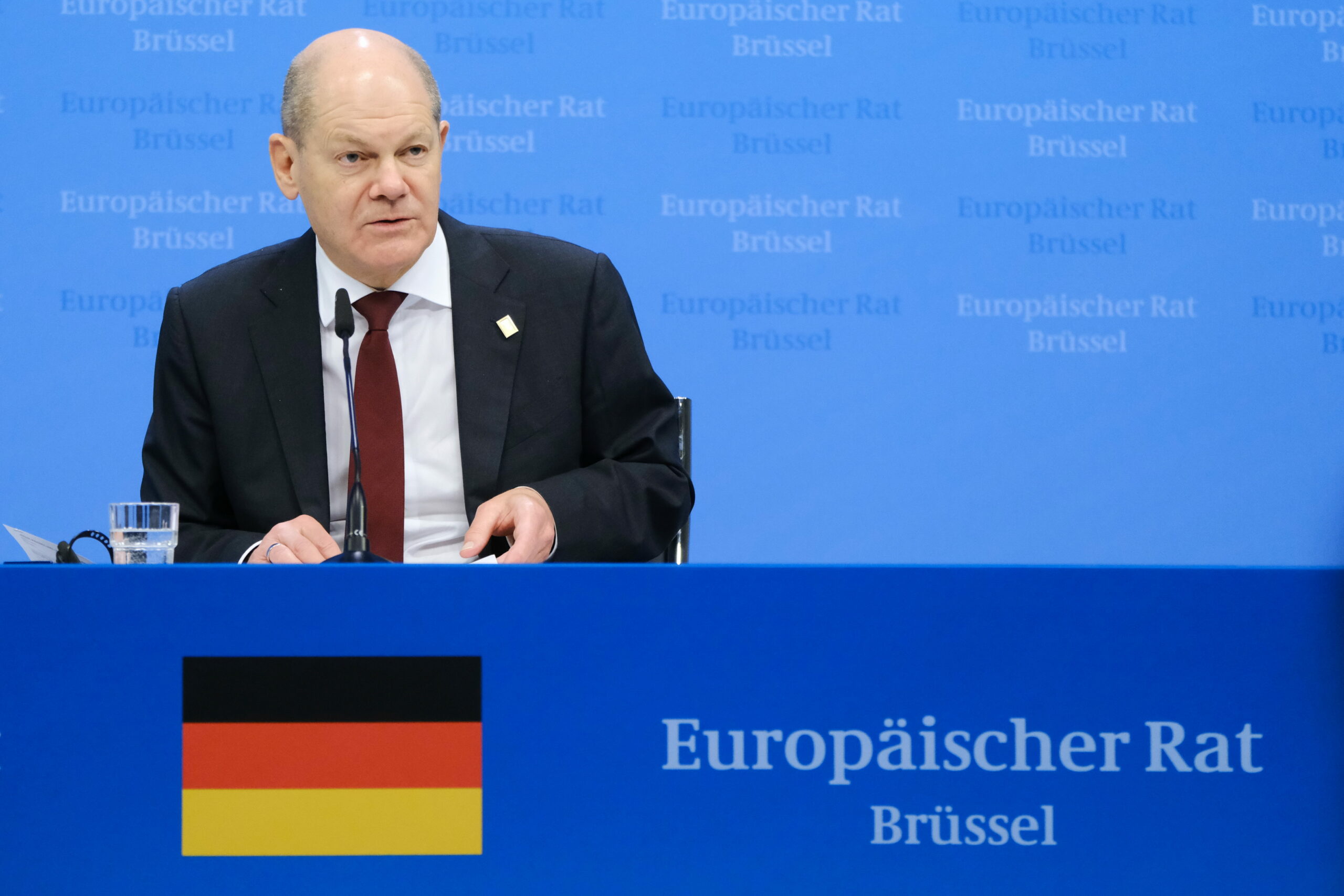How Germans will vote in the European elections. Here are the latest polls

A point on the European vote in Germany and the state of the parties
Half the German government has put on rubber boots and rushed to the flooded areas of southern Germany, in Baden-Würrtemberg and Bavaria, where the damage from the current wave of bad weather risks bringing thriving local economies to their knees. An institutional duty, that of ministers, but also an obligation. Next Sunday we will vote for the European elections and Olaf Scholz remembers well that three years ago a communication error during a similar environmental catastrophe in North Rhine-Westphalia cost his main contender (Armin Laschet) the chancellorship and gave him the push to the victorious final sprint.
Therefore the news of this last part of the electoral campaign has abandoned European issues to focus on the national environmental emergency. But climate-related issues are no longer at the center of voters' interest and the polls reflect on the one hand the changed hierarchy of concerns, and on the other the disappointment with the actions of an executive that had aroused many expectations.
THE FAVORITE PARTIES IN THE EUROPEAN ELECTIONS IN GERMANY, ACCORDING TO THE POLLS
In Germany, the hypocrisy of the pre-election silencer in the polls is unknown and therefore it is possible to have an indication of the mood of the voters even in the last week. Numbers in hand, the European transition promises to be very hard for the governing parties, disappointing for the AfD, encouraging for the CDU's dreams of returning to the chancellery and almost exciting for Sahra Wagenknecht and her young populist left formation.
The Deutschlandtrend, developed by the dimap institute for the first Ard television network at the end of last week, confirms the main opposition party (the Union made up of CDU and CSU) largely in first place with 29% and the chancellor's SPD Scholz in second, but with a consensus of almost half: 15%. The Social Democrats are closely followed by the AfD and the Greens, both with 14% and followed at a distance by the surprising new party of the Linke defector Sahra Wagenknecht (6%). Closing out were the liberals of the FDP (4%) and Linke itself which dropped to 3%.
These percentages differ slightly from Ard's poll for the Bundestag (the election of which will instead be held in just over a year), where according to Deutschlandtrend the AfD overtakes the Social Democrats in second place with a total of 18%, while the Union further consolidates plus the first with 31%. It would be an interesting data to evaluate the impact of the scandal that hit the leader of the far right for the European elections, Maximilian Krah, and the number 2 on the list, Petr Bystron, but also the substantial stability of the AfD on the internal level. An alarm bell especially for the subsequent regional elections in September in three crucial eastern Länder, Saxony, Brandenburg and Thuringia, where the ultra-nationalists keep their consensus intact and could win by exceeding 30%.
However, another slightly more recent poll, this time only for the Bundestag, carried out by the Insa Institute for Bild, nails (so to speak) the AfD at 15.5%, given that it is however the lowest since March 2023. Among the search for Ard and that of Bild only lasted a few days, during which however the Islamist attack took place in Mannheim, which cost the life of a policeman. An episode that does not seem to have given the far right a breath of fresh air. The Bild survey also shows a better rating for Sahra Wagenknecht's BSW, which reaches 7.5%, thus proving itself to be the only real party capable of draining votes from the AfD.
Again according to Ard analysts, the electoral framework that will emerge from the European vote is affected by the enormous historical changes that have occurred since the last elections in 2019, and especially in the last two years. In the Germans' scale of priorities, peacekeeping is now in first place (26%, +4 compared to May 2019), followed by social security (23%; +3), immigration (17%; +5 ) and the economic crisis (13%; +3). The most important topic of 2019 – climate and environmental protection – is mentioned today by only 14% (-9).
SCHOLZ GOVERNMENT REJECTED
The other element that will affect the vote concerns the strong disappointment with the Scholz government's action. A very high percentage, 74%, declare themselves dissatisfied with his work, a disaffection that also creeps in among supporters of the majority parties: only 23% of SPD voters manage to find their chancellor's work acceptable. From substance to form: over 85% of Germans find the way in which the government explains and communicates its policies and the way in which parties relate to each other inadequate.
GERMAN EUROPEANISM DECREASES
The rate of Europeanism among Germans is also decreasing. Only four out of ten voters, 41%, consider Germany's membership of the EU to be advantageous (it was 46% five years ago) and just half, 48%, would like member states to intensify their cooperation in the coming years ceding more competences to Brussels: in 2019 it was still a 55% majority.
This is a machine translation from Italian language of a post published on Start Magazine at the URL https://www.startmag.it/mondo/elezioni-europee-germania/ on Wed, 05 Jun 2024 05:08:32 +0000.
